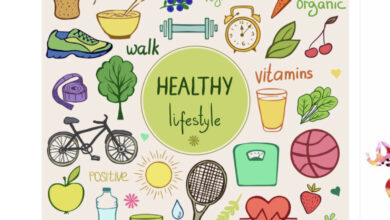mRNA VACCINE EFFICACY

Who really knows how effective mRNA vaccines are for COVID-19. All degrees of outrageous claims about them are made back and forth, right and left, nearly every day. What are we to believe? I don’t know. It is a fact, however, that mRNA vaccines are new biochemical technology, and there’s still a lot we don’t know about them.
One thing is certain—people can still get sick with COVID-19 after being vaccinated with an mRNA vaccine. We all know people who were ”fully vaccinated” who later became ill and tested positive for COVID-19 at least once, and for some, twice. That surprised us, disappointed us, and more importantly, increased our already expanding skepticism about vaccines, pharmaceutical companies, the Federal government, the CDC, and public health officials. Have we been lied too? We still don’t know.
A huge study done from March 2021 to January 2022 attempted to reassure Americans that COVID-19 vaccination was worthwhile, but just not in the manner we expected. Our hope was that, like smallpox and polio vaccines, COVID-19 vaccination would prevent us from getting the disease for the rest of our lives and put an end to the pandemic! That turned out not to be the case.
What the study referred to did teach us about mRNA COVID-19 vaccines is the following:
- “Regardless of which strain was circulating at the time, COVID-19 severity…..was lower for vaccinated than for unvaccinated patients.” If you got COVID, regardless of the variant, it wasn’t as severe if you were vaccinated.
2. When Alpha and Delta variants were dominant, mRNA vaccines prevented hospitalization in
85% of those vaccinated. Vaccination kept you out of the hospital.
3. When the Omicron variant was dominant, 2 vaccine doses prevented 65% of
hospitalizations and 3 doses prevented 86% of hospitalizations. 3 vaccine doses keep
you out of the hospital.
4. Two or three doses of mRNA vaccine were effective in avoiding being put on a ventilator.
For the Alpha variant, it was 76% effective. For Delta and Omicron variants it was 45%
effective. Vaccination prevented needing a ventilator in many cases.
Bottom line: mRNA vaccination does not prevent COVID-19 infection. But if you do get COVID-19, you won’t be terribly sick, you’re far less likely to require hospitalization, far less likely to be put on a ventilator, and far less likely to die.
Message: From the study quoted here, COVID-19 vaccines demonstrate some benefit. It’s not total immunity to the disease, as we hoped, but it is reduced severity of illness and less risk of a bad outcome. I think those facts are motivation to GET VACCINATED!
Reluctance to being vaccinated stems from the “unknowns” of new mRNA technology. These “unknowns” have been emphasized by many skeptics and anti-vaxers and as a result, a large number of Americans have refused vaccination. That’s their right, of course, but I think these folks are more anxious than is warranted, but the vaccine shouldn’t be forced on them. As for me, I’m not concerned about the “unknowns.” Millions of people have already been vaccinated before me, and are not suffering from complications. I’ve had all four recommended doses without problems so I’m not worried.
In my mind, the only justification for mandatory vaccination would be the death rate and demography associated with the virus. If one had a high percentage chance of dying from the virus, regardless of age, vaccination should be mandatory. We know that’s not true with COVID-19, though. The elderly with co-morbidities and the immunocompromised are at greatest risk. Vaccination should be mandatory for them, but not for healthy adults and five year olds. We must acknowledge, also, that reducing the severity of illness and improving outcomes are of some value and should compel many to get vaccinated. But the American public has lost faith in the CDC, NIH, and federal and local health officials. Outrageous claims, finger-pointing, mis-management, suppression of medical treatment options, criticism of policies by one official and praise of similar ideas by another, and politicization of a health “crisis” have erased trust. We don’t know who to believe any more. It was never this way until HIV became an issue. It changed public health forever and COVID-19 just deepened the distrust. Now skepticism abounds.
I know not everyone agrees, but vaccination is a beginning to an end of the COVID-19 pandemic. If anything, it’s symbolic of being proactive. It’s not a surrender to external control. I still think mainstream medical professionals practice what’s best for their patients and have them as their focus. Their decisions are individualized and right for that patient. That’s always been “the medical way.” It’s politicians and bureaucrats with political biases and agendas that stir disagreement, division, and cast doubt. That’s unfortunate, but a daily reality, and I don’t have an answer for it.
Reference: Biotech Innovations: Vaccine Booster Dose Appears to Reduce Omicron Hospitalizations. JAMA 2022 April 12;327(14):1323.




